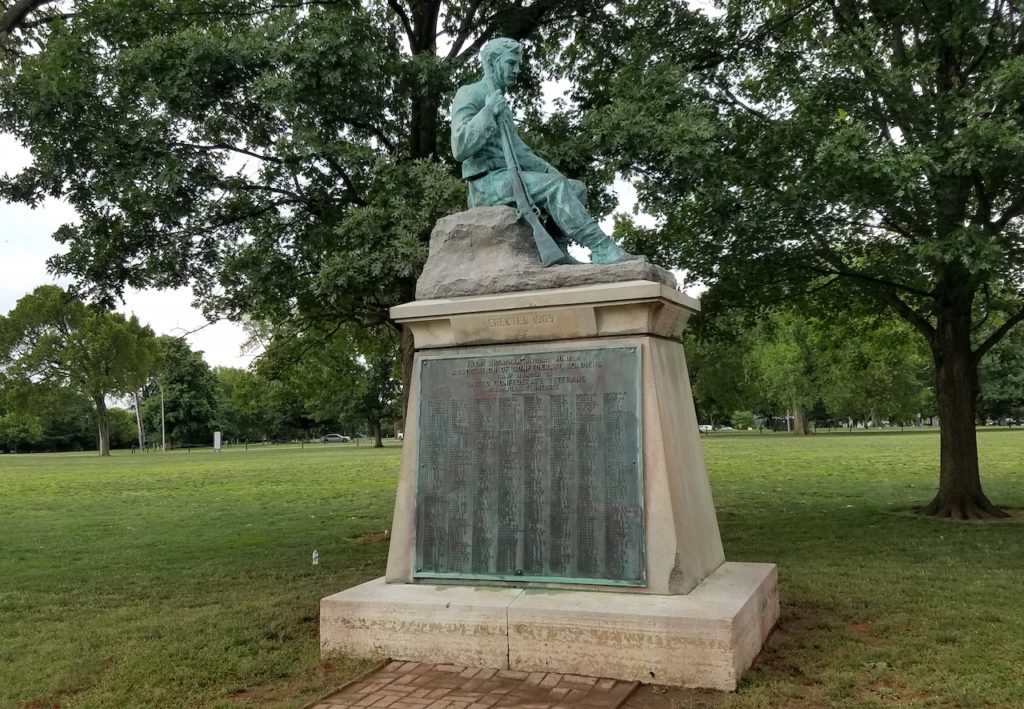
Metro Parks has deferred a decision on whether to move the Confederate Private Monument from its place near the Parthenon to another section of Centennial Park.
The delay is meant to give the Parks Board time to consider a second option — simply adding interpretivesignage that could save the city the hassle of a state review.
“I think, as an alternative, interpretive signage with context is a sound option,” Monique Odom, the head of Metro Parks, told board members at a meeting Tuesday.
A 2013 state law says no monument can be moved without the permission of the Tennessee Historical Commission. In 2016, it rejected an attempt to remove a statue of Confederate General Nathan Bedford Forrest from a Memphis park.
The city of Memphis defied the commission a year later by selling that park and another to a private nonprofit, which removed the Forrest memorial and two other Confederate monuments. That prompted litigation and a state penalty.
(A separate attempt in 2017 to remove a bust of Forrest at the Tennessee State Capitol was rejected by the State Capitol Commission.)
In Nashville, moving the Confederate Private Monument has been part of a redevelopment plan for Centennial for several years. Apart from a vandalism in June, the bronze memorial has attracted scant attention, so parks officials have suggested moving it to a nearby hill, where it could be included in an interpretation of the Battle of Nashville.
More:
Metro Parks Will Explore Relocation Process For Confederate Monument In Centennial Park
But even that would require going through the Tennessee Historical Commission.
The Parks Board is scheduled to discuss the monument’s fate again at its next meeting.
Correction: A previous version of this story misstated the Tennessee Historical Commission’s role in two previous attempts to relocate Confederate memorials. In 2016, the commission considered a request to relocate only one of three monuments in Memphis, the statue of Nathan Bedford Forrest. In 2017, a petition to relocate a bust of Forrest in the Tennessee State Capitol failed before it reached the commission.

